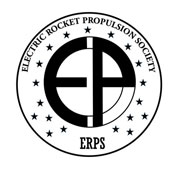View Award Winners
Kuriki Award for Young Professionals
A. Description
The “Kuriki Award for Young Professionals” (Kuriki Award) is an Electric Rocket Propulsion Society (ERPS)-sponsored award that is presented for each conference (starting in 2017) in honor of the extensive contributions that Dr. Kuriki made to the field of electric propulsion and to ERPS governance. The award is both to acknowledge the contributions of a promising young professional in the field of Electric Propulsion and to encourage continued efforts in the field. Qualified candidates can be nominated by any non-candidate ERPS member, with the award selection based on the evaluation of the body of work of the candidate.
B. Administration
Prior to each International Electric Propulsion Conference (IEPC), the ERPS Board of Directors will appoint a Kuriki Award Committee (KAC) Chair to lead the Kuriki Award selection process. The Chair may be a member of the ERPS Board of Directors or a member of one of the IEPC Working Committees. The Chair will select a Kuriki Award Committee (KAC) to be composed of no less than three ERPS members (Chair included). The ERPS Awards Chair will review and approve the membership of the KAC.
The timetable for evaluation must be such that the selection is made and communicated to the ERPS Board of Directors as per Section E no less than 45 days from the start of the IEPC, to permit sufficient time for notification of the recipient and preparation and shipment of award materials for presentation.
C. Application and Selection Process
To qualify for Kuriki Award consideration, the potential candidate must be nominated by a member of the electric propulsion community The deadline for receipt of nominations is set by the KAC Chair that will be no less than three (3) months prior to the upcoming IEPC at which the award is to be presented. For consideration, the nominator must supply an application packet that includes:
1. A current, one page Curriculum Vitae including the candidate’s birth date (applicant must be 35 years of age or under at some point during the calendar year in which the IEPC is held).
2. A detailed description of the applicant’s contributions in the field of electric propulsion (not to exceed 5 pages); and
3. Up to five technical papers from relevant Journals and / or Conference Proceedings. The applicant must be the first author on at least one of these submissions and the submissions can include technical papers from previous IEPCs.
The initial call for nominations will be distributed by e-mail to all ERPS members within one year of the upcoming IEPC. This call will be distributed with sufficient time to permit the assembly of quality nomination packages. The KAC Chair will set the due date for receipt of nominations, and this date will be distributed with the nomination solicitation.
The KAC Chair will review the submissions for eligibility and completeness of the packages and distribute the eligible nomination packages to the KAC members. Each KAC member will review and rate each packet using the evaluation criteria shown in Section D. KAC member scores will be returned to the KAC Chair for consolidation and averaging. The KAC Chair will distribute the averaged ratings to the KAC members and schedule a final selection meeting with the full committee. The meeting agenda will include discussion / debate of the final selection (if necessary, such as in the event of a tie) and development of the wording for the Award Citation.
D. Award Evaluation Criteria (100 points total)
Technical merit of the contributions described in the submitted application packet (40 points). The term technical merit is intended to cover the scholarship of the presented work on new and unique theoretical and / or experimental findings associated with any electric propulsion concept of interest to the ERPS.
Potential Impacts of the body of work submitted with respect to furtherance of near- and / or far-term space application of electric propulsion technology (30 points). Potential impacts of interest include pioneering research to 1) open a new field of study (new device or technique), 2) address a significant issue associated with advancing electric propulsion technology, and / or 3) increase fundamental understanding of electric propulsion systems and their impacts on space systems.
Credentials (30 points). Evaluation of the quality of both the submitted Curriculum Vitae and technical publications.
E. Ratification
Once a Kuriki Awardee is selected, the KAC Chair presents the selected nominee’s package and the KAC-generated Award Citation through the ERPS Awards Chair to the ERPS Board of Directors for ratification. After ratification, the Awardee will be notified of their selection by the ERPS President.
F. Award Value
The selected Kuriki Awardee will receive a stipend of $1000.00.


